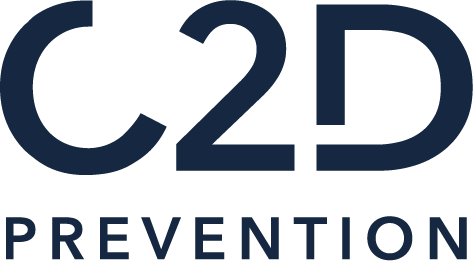
We live in an era where information flows without rest. Notifications, emails, video calls, reports, and endless digital streams all conspire to saturate our attention.
Often seen as a practical inconvenience, cognitive overload is in fact a major risk to both individual health and organisational performance.
What are the effects of cognitive overload at work?
According to the French National Institute for Research and Safety (INRS, 2025), screen-related cognitive overload leads to mental fatigue, mistakes, and reduced alertness.
European research highlights three major consequences:
- more errors (+30% in certain high-risk environments, source: EU-OSHA ESENER 2024)
- a decline in creativity and working memory
- a higher risk of accidents in complex environments
In France, work-related mental disorders rose by 25% in 2023, resulting in over 12,000 related workplace accidents (French Ministry of Labour, 2025).
Why are micro-breaks effective?
Three conscious breaths. Two minutes of walking without a phone. Washing a cup while focusing on the movement. These micro-breaks reset our attentional circuits. They clear the cognitive fog and restore energy.
The EU-OSHA (2023) found that reducing continuous exposure to digital flows improves decision-making clarity and lowers stress levels.
How can companies reshape their culture in the face of information overload?
No individual can offset an organisation overwhelmed by information. Collective levers include:
- reducing unnecessary information flows
- limiting superfluous meetings
- creating protected periods for deep focus
The Economic, Social and Environmental Council (CESE, 2025) reminds us that workplace health must be integrated into overall corporate strategy, not treated as a series of one-off actions.
Our Support
We help organisations to:
- identify their overload hotspots
- train teams to recognise early signs of cognitive strain
- establish attention-regulation practices tailored to their reality
Discover our Mental Overload Workshop: diagnosis, practical tools, and an action plan for your teams.
Key Takeaways
- Cognitive overload increases errors, tension, and accidents (INRS, EU-OSHA).
- Conscious micro-breaks are a simple, scientifically proven lever.
- Prevention requires a cultural shift: fewer information flows, lighter meetings, and protected focus time.
- Organisations that take action gain in safety, sustainable performance, and managerial clarity.
What are the signs of cognitive overload?
Concentration difficulties, frequent mistakes, mental fatigue, loss of creativity (INRS, 2025).
What simple solutions can be applied daily?
Introduce regular micro-breaks, reduce notifications, and set collective times free from digital solicitations (EU-OSHA, 2023).
What are the employer’s legal obligations?
Across Europe, preventing psychosocial risks (including cognitive overload) is part of the employer’s general duty of care (Directive 89/391/EEC).
Why take collective action?
Because no individual can compensate for an information-saturated culture: the CESE (2025) calls for a comprehensive organisational strategy.
INRS. (2025). Travail sur écran : risques pour la santé. Institut National de Recherche et de Sécurité. https://www.inrs.fr/risques/travail-ecran/risques-sante.html
INRS. (2025). Le travail sur écran (Brochure ED 6538). Institut National de Recherche et de Sécurité. https://www.inrs.fr/dam/jcr%3A54f747bd-584c-417e-8d73-5a3685155bce/ed6538.pdf
European Agency for Safety and Health at Work (EU-OSHA). (2024). Digital technologies at work and psychosocial risks: Evidence and implications for occupational safety and health. EU-OSHA. https://osha.europa.eu/en/publications/digital-technologies-work-and-psychosocial-risks-evidence-and-implications-occupational-safety-and-health
European Agency for Safety and Health at Work (EU-OSHA). (2024). European Survey of Enterprises on New and Emerging Risks (ESENER) – First findings 2024. EU-OSHA. https://www.bollettinoadapt.it/wp-content/uploads/2025/02/ESENER-first-findings-2024_EN.pdf
EU Agenda. (2025, février). Psychosocial risks at work: Key findings from ESENER 2024. EU Agenda. https://euagenda.eu/news/887614
Ministère du Travail, de la Santé et des Solidarités. (2025). Parlons santé mentale : prévenir les risques, agir pour le bien-être au travail. Gouvernement de la République française. https://www.info.gouv.fr/grand-dossier/parlons-sante-mentale/prevenir-les-risques-agir-pour-le-bien-etre-au-travail
Conseil économique, social et environnemental (CESE). (2025). La santé au travail : défis et perspectives pour une prévention renforcée. Paris : CESE. https://www.lecese.fr/sites/default/files/pdf/Avis/2025/2025_08_sante_travail.pdf
Klesia. (2025, avril). Le CESE se penche sur la prévention en santé au travail. Klesia Actualités. https://www.klesia.fr/actualites/le-cese-se-penche-sur-la-prevention-en-sante-au-travail
